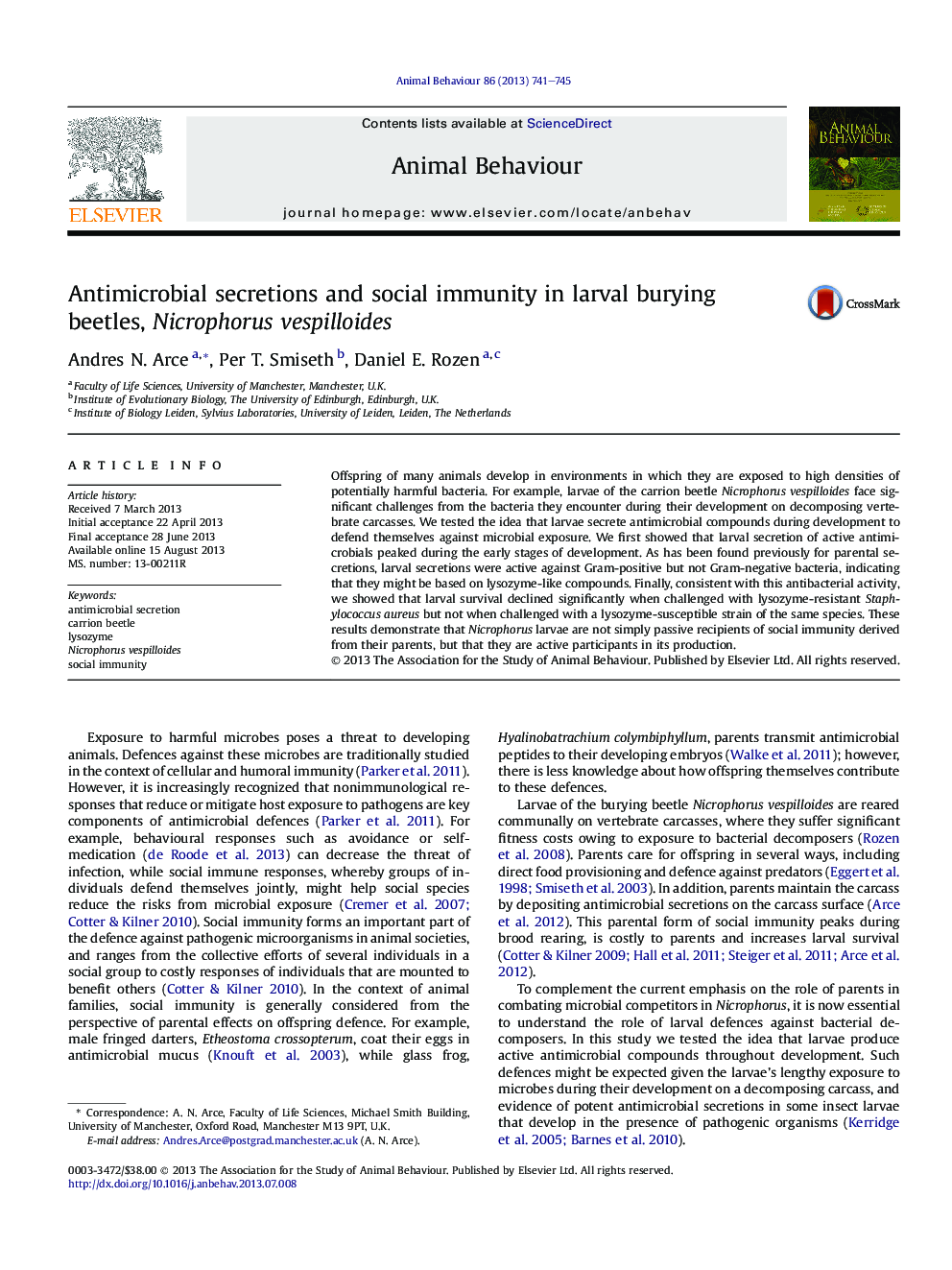| Article ID | Journal | Published Year | Pages | File Type |
|---|---|---|---|---|
| 10970716 | Animal Behaviour | 2013 | 5 Pages |
Abstract
Offspring of many animals develop in environments in which they are exposed to high densities of potentially harmful bacteria. For example, larvae of the carrion beetle Nicrophorus vespilloides face significant challenges from the bacteria they encounter during their development on decomposing vertebrate carcasses. We tested the idea that larvae secrete antimicrobial compounds during development to defend themselves against microbial exposure. We first showed that larval secretion of active antimicrobials peaked during the early stages of development. As has been found previously for parental secretions, larval secretions were active against Gram-positive but not Gram-negative bacteria, indicating that they might be based on lysozyme-like compounds. Finally, consistent with this antibacterial activity, we showed that larval survival declined significantly when challenged with lysozyme-resistant Staphylococcus aureus but not when challenged with a lysozyme-susceptible strain of the same species. These results demonstrate that Nicrophorus larvae are not simply passive recipients of social immunity derived from their parents, but that they are active participants in its production.
Related Topics
Life Sciences
Agricultural and Biological Sciences
Animal Science and Zoology
Authors
Andres N. Arce, Per T. Smiseth, Daniel E. Rozen,
